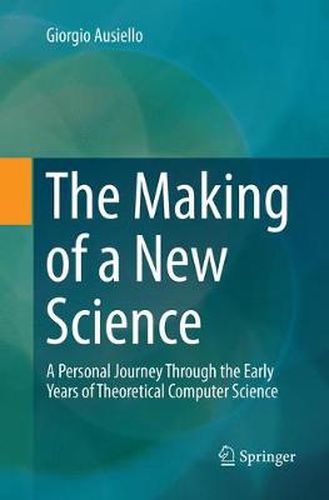Readings Newsletter
Become a Readings Member to make your shopping experience even easier.
Sign in or sign up for free!
You’re not far away from qualifying for FREE standard shipping within Australia
You’ve qualified for FREE standard shipping within Australia
The cart is loading…






This book explains the development of theoretical computer science in its early stages, specifically from 1965 to 1990. The author is among the pioneers of theoretical computer science, and he guides the reader through the early stages of development of this new discipline. He explains the origins of the field, arising from disciplines such as logic, mathematics, and electronics, and he describes the evolution of the key principles of computing in strands such as computability, algorithms, and programming.
But mainly it’s a story about people - pioneers with diverse backgrounds and characters came together to overcome philosophical and institutional challenges and build a community. They collaborated on research efforts, they established schools and conferences, they developed the first related university courses, they taught generations of future researchers and practitioners, and they set up the key publications to communicate and archive their knowledge.
The book is a fascinating insight into the field as it existed and evolved, it will be valuable reading for anyone interested in the history of computing.
$9.00 standard shipping within Australia
FREE standard shipping within Australia for orders over $100.00
Express & International shipping calculated at checkout
This book explains the development of theoretical computer science in its early stages, specifically from 1965 to 1990. The author is among the pioneers of theoretical computer science, and he guides the reader through the early stages of development of this new discipline. He explains the origins of the field, arising from disciplines such as logic, mathematics, and electronics, and he describes the evolution of the key principles of computing in strands such as computability, algorithms, and programming.
But mainly it’s a story about people - pioneers with diverse backgrounds and characters came together to overcome philosophical and institutional challenges and build a community. They collaborated on research efforts, they established schools and conferences, they developed the first related university courses, they taught generations of future researchers and practitioners, and they set up the key publications to communicate and archive their knowledge.
The book is a fascinating insight into the field as it existed and evolved, it will be valuable reading for anyone interested in the history of computing.